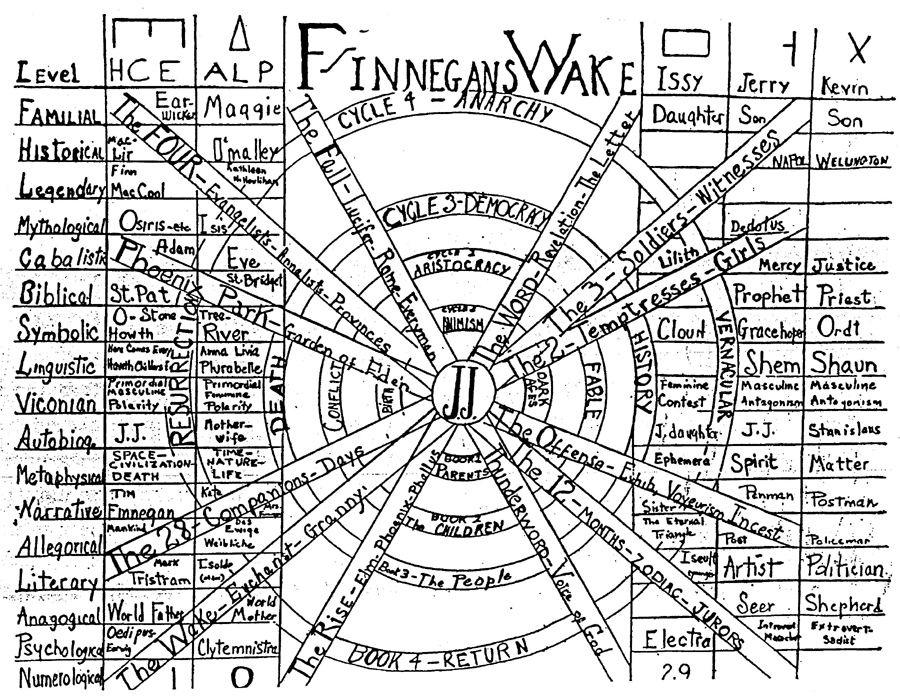You are using an out of date browser. It may not display this or other websites correctly.
You should upgrade or use an alternative browser.
You should upgrade or use an alternative browser.
Ulysses (1922)
- Thread starter version
- Start date
version
Well-known member
Nah, I found him via Joyce. I think Beckett's thing on The Wake - Dante… Bruno, Vico… Joyce - or a post of Grapejuice's. And I don't know enough about him to have an opinion yet.That's a great distinction. Generative vs limiting frames. I just encountered Vico a couple months ago via Robert Pogue Harrison. What do you think? Did you know him before Joyce?
version
Well-known member

The Linear and the Circular in Ulysses and Finnegans Wake - waggish
James Joyce made the superimposition of conflicting patterns one of the central principles of both Ulysses and Finnegans Wake.
www.waggish.org
version
Well-known member
This idea of the two conflicting schema as a deliberate ploy by Joyce to scramble the book further is intriguing. I'd assumed he was genuinely trying to help out his mates by giving them a rough map,
James Joyce made the superimposition of conflicting patterns one of the central principles of both Ulysses and Finnegans Wake. (You can see it in Portrait as well, but nowhere near to the extent.) While he drew on Dante’s schematic cosmology as a model for organizing huge and diverse amounts of material, he drew from Shakespeare the notion that uncertainty, indeterminacy, and outright contradiction could give immense strength and depth to the effect of a work on readers.
Unlike Shakespeare, Joyce could not hide his life from his readers. People were now far more interested in the life of the artist, and documentation was too easily had. But rather than trying to mask his intentions, he could overload a work with as many conflicting and indeterminate moments, motifs, and significations as possible. Schemata that came to mind after the basic construction of a work, like the infamous Ulysses schema that Joyce gave to Stuart Gilbert that has held too much sway ever since, were just additional bricks to add to the consternating edifice. (Note the somewhat variable Linati schema.)
version
Well-known member
This book in particular?its deflating reading about this book i find. if i read a cliffnotes account of the section ive just read i am filled with despair and rancour.
luka
Well-known member
yepThis book in particular?
shiels
_
Let's do a book club on it in about 2 months
I’m around page 350 with the lovely gerty with the pale skin and wavey hair. It’ll be a couple of weeks before I’m done
luka
Well-known member
I’m around page 350 with the lovely gerty with the pale skin and wavey hair. It’ll be a couple of weeks before I’m done
what book is this?
version
Well-known member
I've been reading it on and off since July. Some of it's a proper slog, "just turning the pages" as you put it earlier, and some of it's brilliant. There've been a few moments where I've seriously considered ditching it, but then I'll read it a bit more and fall in love with it again.what's been your experience of the book version, talk to me about your actual life experiences of reading it
